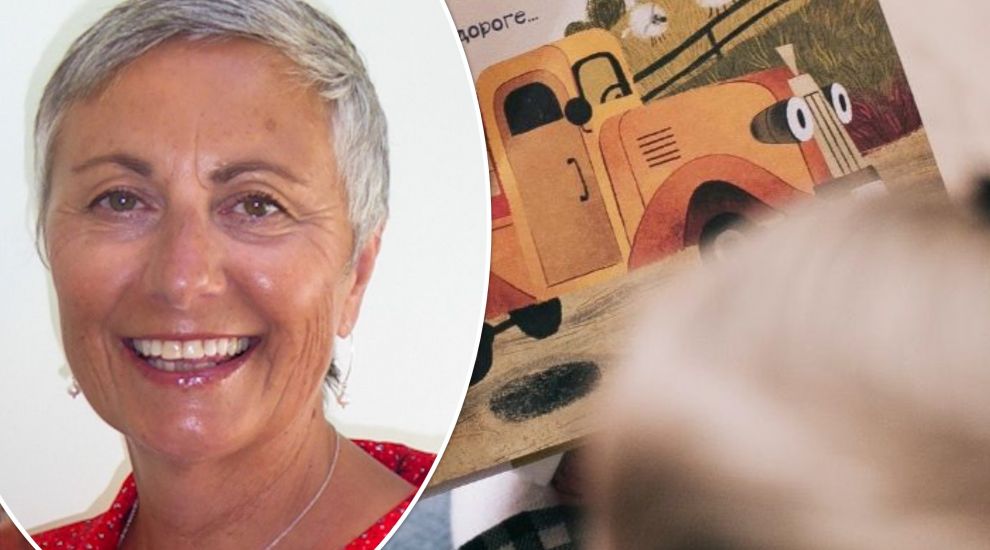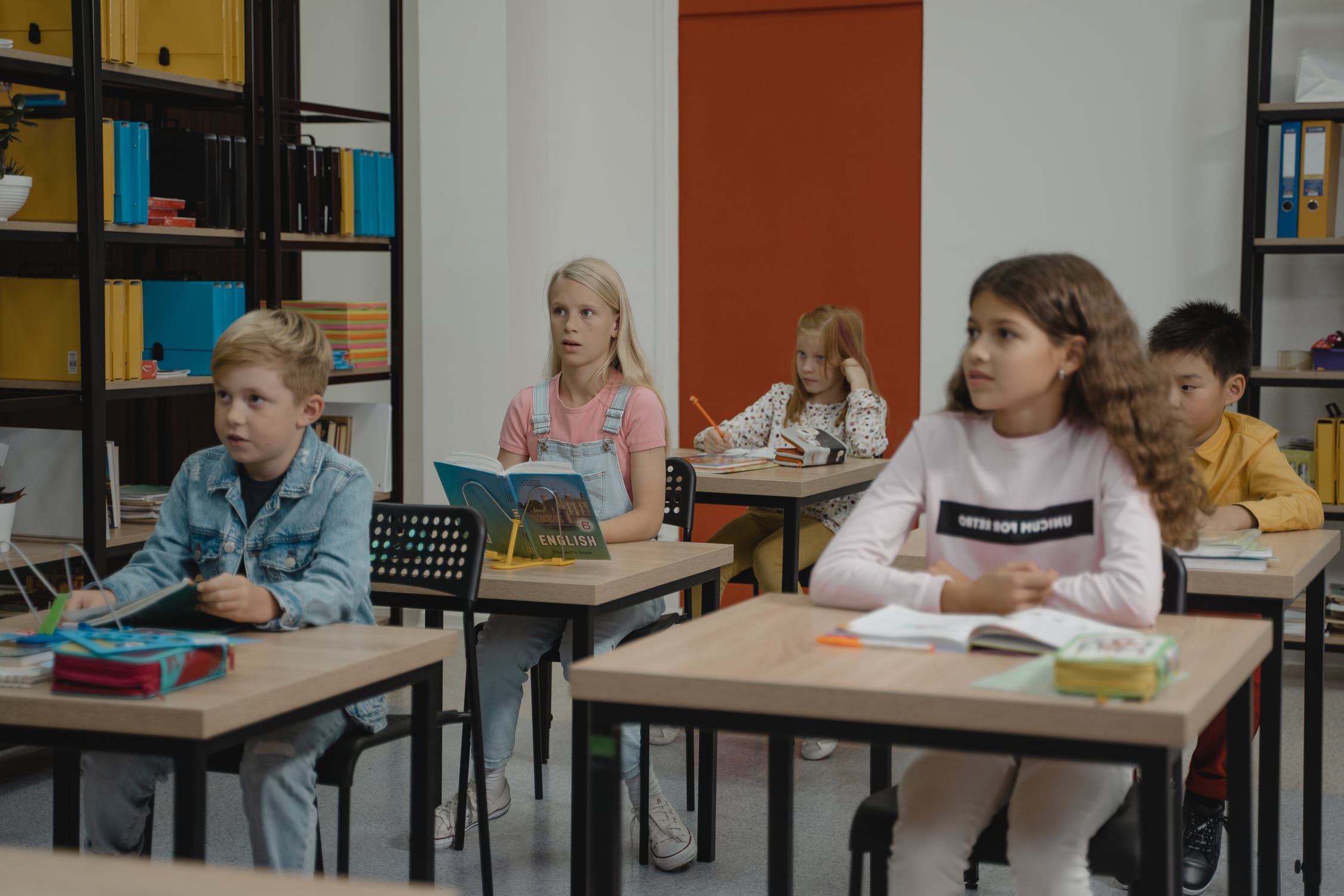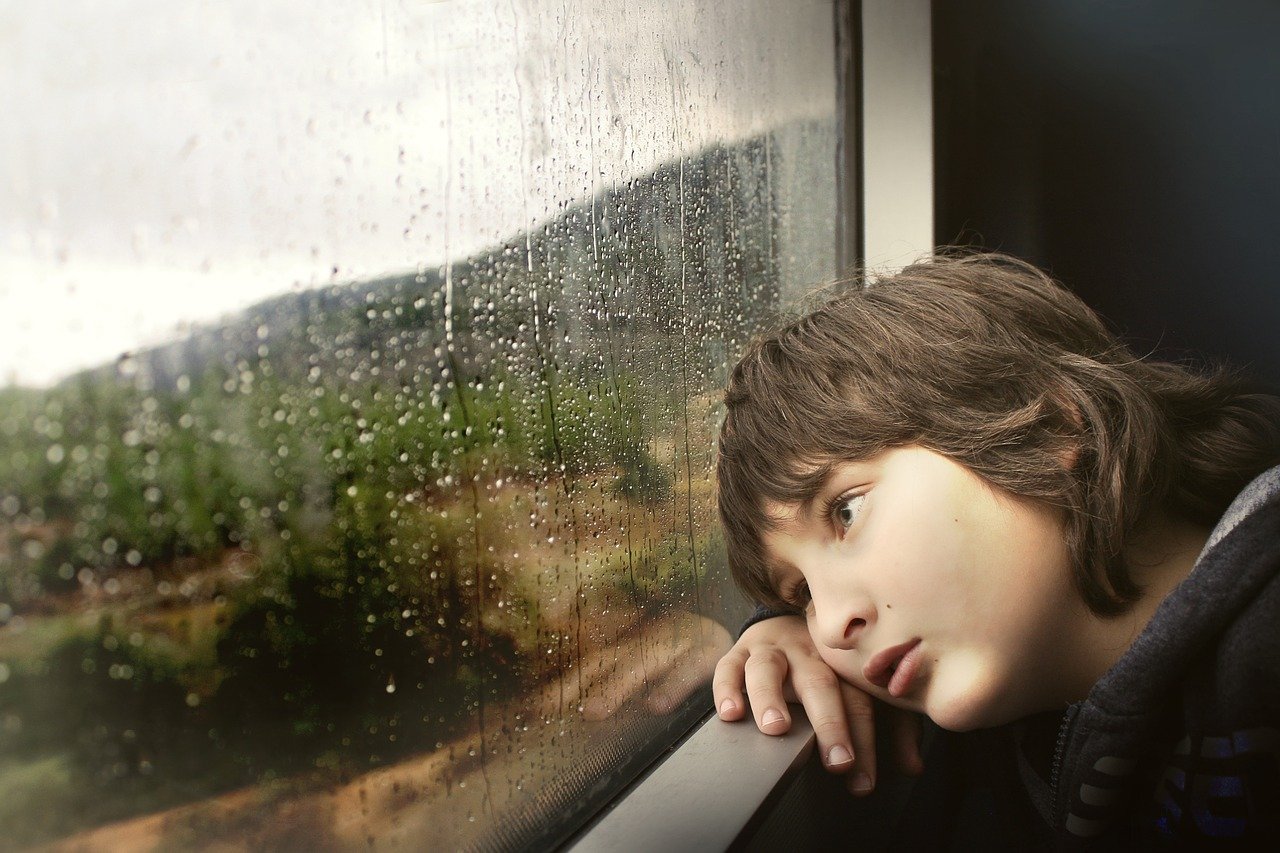


Counting and reading are second nature to most of us, a cognitive process that we aren’t even aware of.
However, for an education expert like Cris Lakeman, the newly appointed and first ever CEO for charity Every Child Our Future, the building blocks of this knowledge are something she quite literally sees on a regular basis.
“I watched a little boy count 20 cubes today - he’d counted them about three times. He’d had 18, and then the gentlemen had given two extra cubes, and he kept on forgetting to count the two that he’d put on the top, and he went back,” she tells Express.
“The volunteer waited, and didn’t quickly jump in with the answer. He just waited, and let him count again, and he let him count again, and he let him count again.
“Then finally the boy realised what he needed to do - he needed to include those two.”
The former Grands Vaux and d’Auvergne Headteacher has spent a considerable amount of time in Jersey's education system.

Pictured: Every Child Our Future offers resources to schools to help children with literacy and numbers.
Her work has spanned across the island’s education system, from Highlands, to education in the prison, to her most recent role as a Senior Adviser to the Education Department, where she worked with all schools on the Jersey Premium, as well as the Jersey Tutoring Programme, an initiative set up to support children disadvantaged by the pandemic.
Now, she is spearheading local educational charity Every Child Our Future (ECOF), which focuses on helping children from less advantaged backgrounds with their literacy, numeracy and early years communication.
ECOF is predominantly driven by its corporate volunteers from 25 partners such as Deloitte and PwC, and, more recently, community volunteers, who will go into schools and give extra learning time and assistance to children who need it, having been advised by the Education Department’s specialists.
This ranges across three programmes - fostering a love of books through reading stories to nursery children in their ‘Story Starters’ work (in conjunction with UK charity Coram Beanstalk), developing literacy skills with Key Stage 1 students in their ‘Reading Partners’ scheme, and their newer maths programme, ‘Number Starters’.
Explaining the need for the charity, which sees volunteers go into schools across three programmes, Ms Lakeman highlighted the attainment gap between those receiving the Jersey Premium - extra funding in schools for less advantaged children - and those who do not.

Pictured: From an early age, ECOF intervenes to try and foster a love of reading in less advantaged children.
“There is a gap of between 15% and 20% in outcomes,” she explains.
“So you are more likely if you are eligible for Jersey Premium not to be reaching the age-related expectation at the end of foundation stage, Key Stage 1, Key Stage 2, GCSEs.
“That of course has a serious impact on your life chances - you don’t get those good grades, you don’t have the opportunities and doors open to you.”
Indeed, this is reflected in the phrase she keeps returning to throughout the wide range of educational topics she covers - “closing the gap.”
“There is a gap with children’s experiences and children’s opportunities before they even start school, and that continues,” she says.
“One of the sad things is that gap grows - so when they start nursery, there was a gap, and the longer they stay in school, the gap widens.”
That’s what ECOF is there for, she adds - "It’s possible to close that gap.”
Ms Lakeman says that a number of socio-economic factors contribute to why children need the extra support.
Touching upon parents who have to work a number of jobs and long hours to support their children and put food on the table, she notes that “not all children have lots of books at home, and parents don’t have lots of time to read them stories.”

Pictured: Ms Lakeman says that the roots of inequality stem from a number of socio-economic factors, spanning back as far as pregnancy.
She traces the roots of inequality back all the way to life circumstances at birth.
“It doesn’t start when children start school, it starts with your maternity leave, your paternity leave - which of course has improved in Jersey - it starts way back then.”
Another group she mentions are children who have English as an additional language, or those whose families arrive on the island with very little money.
“In Jersey, I think the most vulnerable group are those who arrive on the island and are not able to claim income support, and… live in poor quality housing. They’re a very vulnerable group,” she says.
Whil she notes that it’s “not a homogenous group”, and that bilingual skills are often a great benefit, Ms Lakeman equally observes that “there are children who are significantly behind because their starting point… their understanding of English, hasn’t developed.”

Pictured: Some children who have English as another language have to not only adapt to a new language, but a new style of teaching too.
It’s not just having to learn a new language either, it’s also adapting to a different teaching style.
This became particularly apparent following a trip to Madeira she made when investigating why statistics showed Portuguese children weren’t doing as well as Polish students.
“...One of the things we learnt is that it’s a very different education system [in Madeira],” she says.
“It’s a very different education, what we might call ‘chalk and talk’ - in secondary school the teacher stands up and does the majority of the talking, it’s not as interactive as we would see here.
“And, even in Primary Schools, it’s very textbook-led, so it’s very different to what we’re used to.”

Pictured: Ms Lakeman emphasises that children should be given space and time to develop and learn, rather than simply face classroom pressure if they feel behind.
For all these children who start school at a disadvantage, she says that having the extra space to develop their learning and have time to understand without feeling pressure is vital.
“Not interrupted, no one else is going to put their hands up and get the adult’s attention - there’s a power in that one-to-one,” she summarises.
Ms Lakeman's appointment as ECOF's new CEO comes at a time when it is clear the ‘gap’ has been growing for those already in an already disadvantaged position due to the damage wreaked by the pandemic.
A Government report last year concluded that children with either economic or health disadvantages were amongst the hardest hit by school closures earlier in the pandemic.
“The research coming out of the UK is very strongly saying that the disadvantage gap has very definitely widened and it’s going to take a very large number of years to catch up,” she says, acknowledging this.
“We haven’t had the same amount of disruption as the UK, but we still have had what is an enormous disruption - ten weeks of missed school, and then a period of time where daily life in schools is very different.
“It’s also been disrupted with children going home, with staff having to isolate…”

Pictured: ECOF have made efforts to address the effect that school disruption has had on children's lives.
Before Ms Lakeman’s arrival, ECOF were already seeking to improve this situation, securing over 700 laptops earlier this year for students at D’Auvergne, Rouge Bouillon, Plat Douet, St. Luke’s, Janvrin, and Les Quennevais Schools.
Speaking about how in particular, disadvantaged children suffered during the closures, she illustrates two very different pictures.
One is of someone with their “own bedroom or a private space, which you an be going in on your own device and you can be learning, you have parents who… have time to research and input, and who are able to take you out into the wonderful environment that we have in Jersey.”
She then contrasts: “That’s going to be a very different experience if you’re living in cramped accommodation, limited wifi, limited devices, [and] parents who need you to perhaps support your siblings.”
A crucial area affected by the pandemic has also been that of speech, which, according to Ms Lakeman, has seen schools struggle to support students who have been left without their vital communication tools.
"I know that during the period where Health had to change some of their services, Speech and Language didn’t happen for a period of time, so schools are telling me there’s a year’s waiting list for children from referral to be seen by therapists, and that’s significant,” she highlights.
Express asked the Government about the waiting list last week and what was being done to deal with it, and is still awaiting a reply.
“…The key thing really is being able to communicate, being able to be understood - and if you don’t have that, school is very challenging.”
She adds: “If I had one thing you need to get right in school, it’s your speech, language and communication without a doubt.”

Pictured: "“… the key thing really is being able to communicate, being able to be understood."
She observes the long-term impacts of this by noting that often in the prison system, there are undiagnosed or unaddressed speech problems.
“If you can get language right, if you can get good vocab, good love of literacy, you can solve a lot of problems that could otherwise be coming,” she says.
As well as their new increased provision of volunteers, the charity will be continuing to support children through their three programmes, as well as co-funding £25,000 Summer Schools at Plat Douet and d’Auvergne School respectively, in collaboration with the Government.
They will also be working with them on a £60,000 summer school at Haute Vallée, funded from a bid from the Fiscal Stimulus Fund, providing their resources and teaching.
While she has many ideas for the long term, Ms Lakeman says her current aim, having just begun, “is to strengthen what we already have and build on the foundations”, which will involve fostering relationships in the local community. This process has already begun - she is currently in discussions with Chief Librarian Edward Jewell to see how ECOF can incorporate the library into their work.
On what both short-term and long-term work builds towards though, she is very firm with her aim.
“I want to see the gap between the disadvantaged and the more advantaged children closed - that’s ultimately what I want to see as an outcome.”
Comments
Comments on this story express the views of the commentator only, not Bailiwick Publishing. We are unable to guarantee the accuracy of any of those comments.